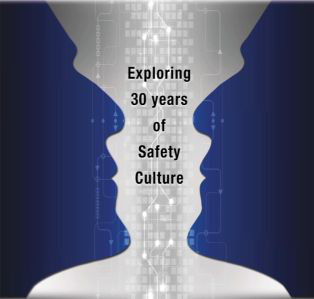Speaker
Synopsis
Provision of adequate knowledge, competence and expertize represents a major concern when addressing nuclear/radiation safety issues in small countries – if inadequate, safety will eventually be jeopardized. Montenegro is such a small, developing and “non-nuclear” country – the use of radiation sources being modest and limited to a few ordinary applications (primarily in health care). Even though, there is (or will be in the foreseeable future) a significant need in nuclear knowledge, competence and expertize – directly or indirectly related to nuclear/radiation safety and security issues. It goes about the following, the list being not exhaustive: (i) medical applications (diagnostics, radiotherapy, palliation, sterilization of equipment, consumables, blood products, etc.), (ii) radiation protection, including various dosimetry services and QC/QA of radiation sources; (iii) environmental protection (radioecology, analytical and monitoring services, etc.), (iv) low and medium activity radioactive waste management (including a newly licensed storage), (v) industrial, geological, hydrological, agricultural, biochemical and archaeological applications (non-destructive testing, various gauges, radioisotope labeling, harmful insects sterilization, etc.), (vi) scientific and educational uses, (vii) cultural heritage preservation and investigation, (viii) legislative and regulatory aspects, including complying to international safety/security norms and joining international conventions in the field, (ix) preparedness and response to radiological and nuclear emergency situations, (x) combating illicit trafficking of nuclear and other radioactive materials, (xi) nuclear forensics, (xii) security systems based on X-ray and other nuclear methods, (xiii) introduction of some future topics (e.g. nuclear power for electricity generation and sea water desalination), (xiv) public information and communication with media, etc.
University of Montenegro (UM) is the only state university in the country and the only one providing higher education, scientific research and expertise in natural and technical sciences, including nuclear/ radiation-related ones – it is the statutory duty of UM to do so, and to do it in a manner commensurate to the country needs. By far the most relevant expertise in the country is either concentrated at UM or is deriving out of it; it therefore goes without saying that UM has fundamental role in meeting nuclear/ radiation related goals (safety included) in Montenegro.
Small issues in big countries are often big issues in small countries. IAEA offers the unique and equal opportunity for all Member States to come up with their issues and seek for cooperation/assistance in order to cope with the problems; numerous modalities are at disposal to addressing the issues.
Networking is becoming increasingly important for building/sustaining a national body of knowledge, competence and expertize. This is particularly valid for those countries whose domestic resources are limited and/or where no critical mass of the above three constituents exists, which could sustain the system on its own. For instance, IAEA-based international networks for nuclear security education (INSEN) and training&support (NSSC), even relatively recent, proved pivotal/fundamental in this respect. At UM (Department of Physics) we have launched several targeted educational courses at post-graduate level, following INSEN guidelines; the pioneering educational materials developed within the network represent the basic literature for both students’ and lecturers’ use. We also participate in nuclear knowledge management (NKM) activities and use their information system (INIS) when sourcing relevant data. UM is also national contact point for INES (International Nuclear and Radiological Event Scale) and has trained staff for properly reporting in case of incident/accident. UM participates in IAEA-supported Nuclear Instrumentation Laboratory Network (NILNET) and aims at participating at newly started Internet Reactor Laboratory (IRL).
In concluding, UM is (or is acting towards): (i) becoming national center of competence and expertise in nuclear/radiation related issues, (ii) assessing, creating, preserving and transferring nuclear knowledge (NK), commensurate to Montenegro needs (nuclear knowledge management – NKM), (iii) offering consultancies and technical support services to all relevant stakeholders, (iv) being advisory body to the government for nuclear/radiation related issues and (v) focal point for dissemination and exchange of NK, in particular with the IAEA and European Union (EU), (vi) promoting nuclear/radiation applications for peaceful purposes, in particular medicine and environmental protection, (vii) being national radiation protection centre, (viii) developing curricula for nuclear/radiation related studies at all levels, (ix) supporting young students and scientists in nuclear/radiation related fields and facilitate their exchange with reputed institutions abroad and (x) giving proper and timely information and comments to the public and media on relevant topics/subjects.
An IAEA NKM expert mission to UCNC in 2009, including representatives from NKM centres in the region, affirmatively reviewed the above goals and encouraged both IAEA and Government of Montenegro to continue supporting its realization. Ever since, UCNC stays on the above course, while our new visions – following Montenegro EU accession process – extend to EU perspectives, Horizon2020 in particular.
| Country or International Agency | Montenegro |
|---|---|
| Type "YES" to confirm submission of required Forms A and B via the official channels | YES |

